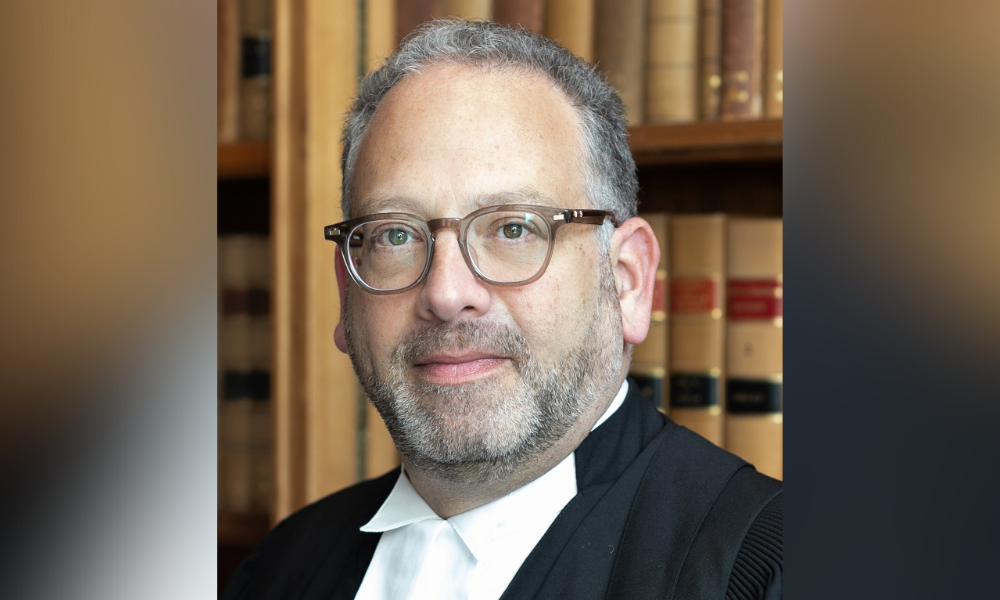
New report recommends mentorship and regulatory enforcement to improve civility and professionalism

The Toronto Lawyers Association's new report, “Civility and Professionalism in the Legal Profession,” highlights the experiences of lawyers dealing with incivility and recommendations on how to address it.
“We want to start a discussion and bring awareness to the issues,” says Aitan Lerner, president of the TLA. “It’s not enough to just discuss it but to have the data so we can have conversations about how to deal with these issues.”
The TLA membership committee, chaired by Edona Vila, wrote the report. Lerner says the association decided to do this report after hearing anecdotal comments about declining civility. “Lawyers want to believe that we’re professional and civil, but we have to be honest,” says Lerner. “It was great to hear from lawyers who are apologetic and want to do better.”
The report recommends increased training and mentorship, public recognition of good behaviour and disciplining bad behaviour to decrease incivility and unprofessionalism. Lerner says law societies and the courts must be more involved, and lawyers who are uncivil or unprofessional should face consequences.
“You don’t hear about lawyers getting reprimanded for incivility,” says Lerner. “We need enforcement of bad behaviour.”
Earlier this fall, the TLA conducted a survey, which garnered 332 responses, and hosted in-person sessions for lawyers and the judiciary, where people spoke in small groups about what they’re observing and possible solutions.
In the survey, nearly 70 percent of respondents agreed that civility and professionalism in the legal profession had declined, but 71 percent said their colleagues were civil and professional.
The top three most common uncivil and unprofessional behaviours were people not responding to correspondence (emails, text messages, etc.), excessive rigidity of positioning in a negotiation and inappropriate interruption of others. Sarcasm, negotiating in bad faith and aggressive or rude texts and emails were also identified as problematic behaviours.
In 2023, nearly 7 in 10 lawyers surveyed personally experienced or witnessed uncivil or unprofessional behaviour by another lawyer, student, team member, court staff, judge, arbitrator, mediator, client or member of the public. Twenty percent of lawyers said they frequently experienced uncivil or unprofessional behaviour. Nearly 30 percent of respondents had experienced uncivil or unprofessional behaviour from a decision maker such as a judge, arbitrator or mediator.
These numbers are higher than other recent reports. In the 2022 Federation of Law Societies of Canada (FLSC) national study on the mental health of legal professionals, 58 percent of those surveyed said they experienced incivility. In the FLSC report, incivility is defined as behaviours where people are treated with condescension, have their judgment doubted, or have their opinions or statements ignored.
When asked why civility and professionalism are decreasing, nearly half of respondents said a lack of training or mentorship. Other factors include the impact of technology, overwork, and raised client expectations.
“We’ve had a lot of interest in our mentorship programs,” says Lerner. “Last summer, we had a speed mentorship event, and that was successful. There’s a desire for mentorship, and younger lawyers need mentorship to help deal with challenging situations.”
Lerner says the consequences of uncivil or unprofessional behaviour include higher costs to the client to resolve disputes and not serving the client's needs. “It affects the profession,” says Lerner. “It affects society because that’s who we represent. It drives up litigation costs and makes it harder to find solutions for clients.”
Survey respondents also pointed to incivility as making legal practice less satisfying, with respondents discussing burnout and wanting to leave the profession. One comment from a lawyer said, “Stress is making me sick.” These are issues further explored in the 2022 FLSC mental health report, where researchers found as billable hour targets increase, so do rates of incivility.
Incivility and unprofessional conduct were also identified as hurting efforts to increase diversity and inclusion in the profession. Thirty percent of survey respondents said incivility and unprofessionalism discourage diversity as these issues are linked to retaining diverse lawyers.
One respondent said, “Racialized lawyers experience thousands of microaggressions that aren't captured in surveys like this on a daily basis. On one of the questions, you asked how we respond and one option was ‘try to ignore it’. That doesn't capture the power dynamic of when we resort to that, such as when the conduct is from an adjudicator or other person with significant power to wield over you or your client.”